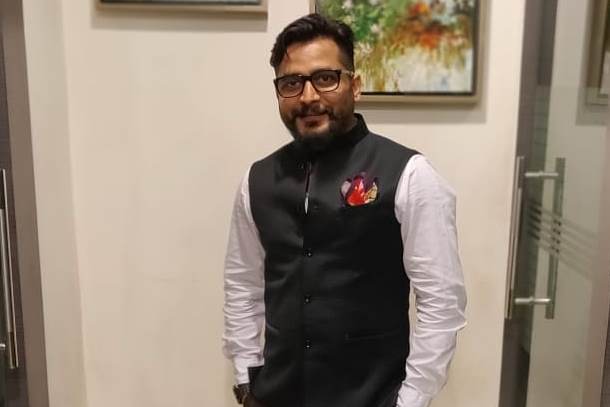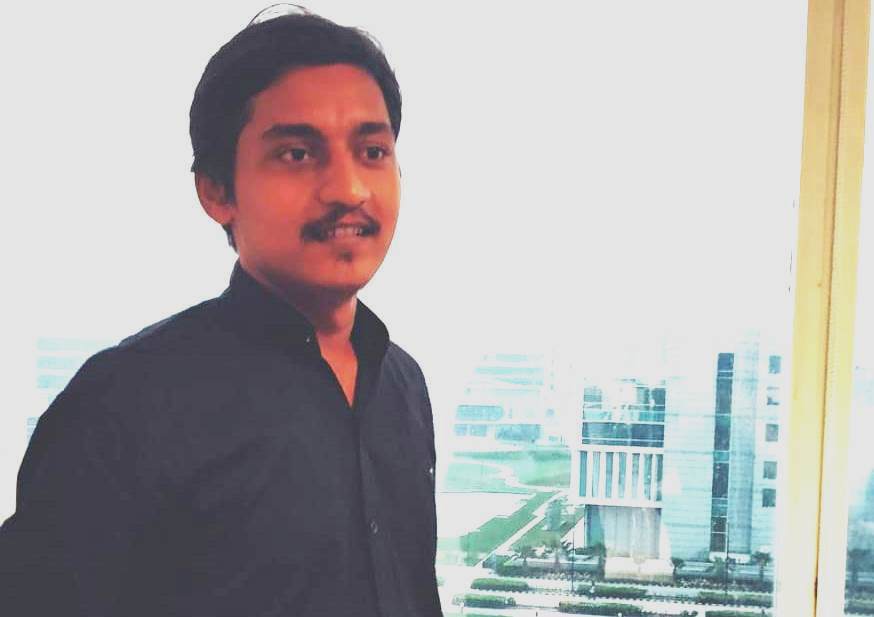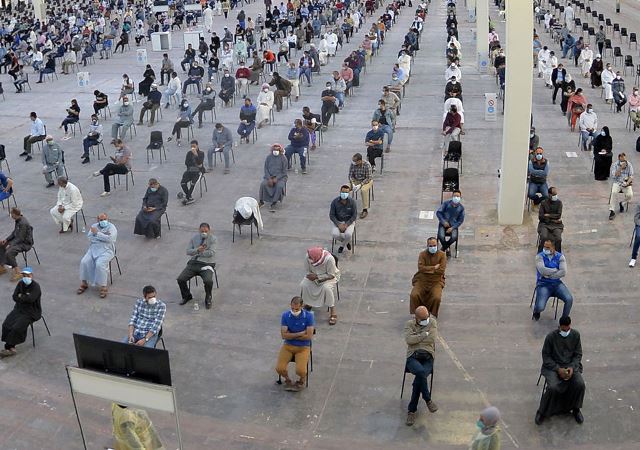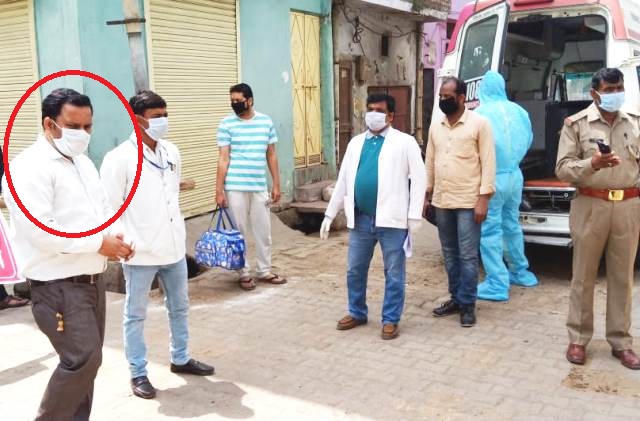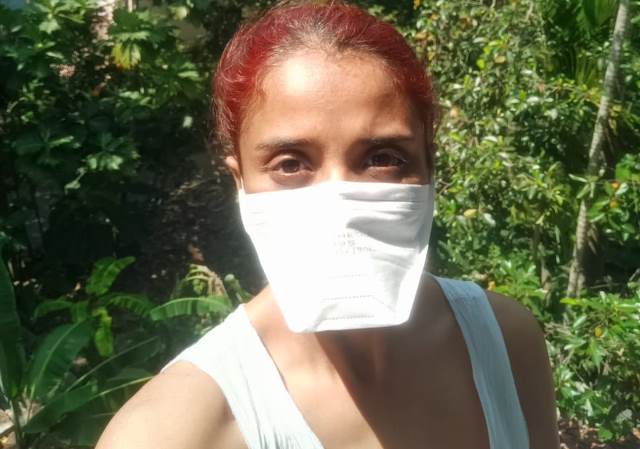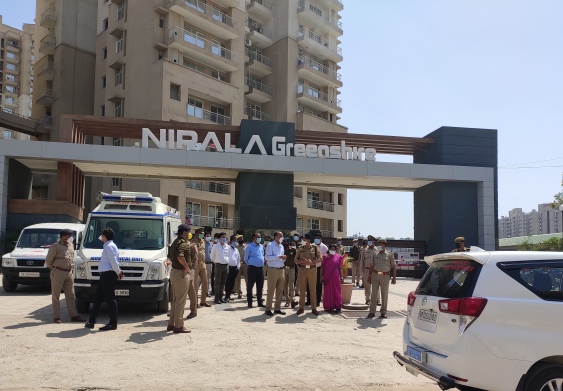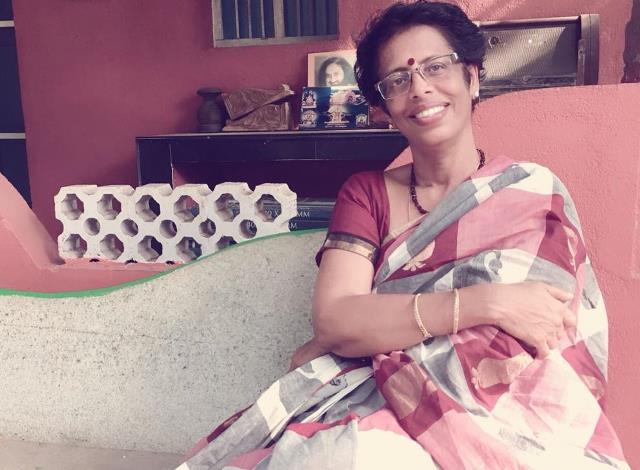Piysuh Kumar Singh, 34, who had a lung problem since 2018, his pregnant wife and ageing mother all contracted the virus at the same time! It wasn’t an easy journey for Singh who also felt stigmatised at some of the places
My name Piyush means amrit (nectar), the fluid that makes one immortal. But when I contracted Coronavirus, I had to battle hard for life. It is said that this virus is fatal for people who have pre-existing health conditions. Unfortunately, I checked quite a few boxes on that score. I suffered from a lung problem called pleural effusion in 2018 and had to be in hospital for nearly a month. My already weakened lungs meant my chances of survival were lesser than others.
To make matters worse, my pregnant wife, my ageing mother and my elder brother all contracted the virus at the same time. Imagine! All three categories considered most susceptible to the contagion were under one roof.
I had always taken ample precautions at work and at home, maintaining hygiene and distancing. So I still wonder how I contracted it. On July 18, when I showed the dreaded symptoms, I dialled one helpline number after another to get myself tested at a government facility. Even for getting myself tested I would have to wait for at least three to seven days. At private diagnostic centres, the waiting period was two days.
ALSO READ: ‘Covid-19 Is Time To Give Back To Community’
I tested Covid positive on July 20. By then, my brother had started complaining of fever and I knew the virus was upon us. I had to get admitted while the rest of my family had to be in home quarantine. The real struggle began thereto!
Government hospitals were overflowing with Covid patients while private hospitals were charging a fortune. When I contacted private hospitals in Kolkata, beds weren’t available. I had high fever, stomach aches, loss of appetite and many other problems (Thankfully, breathing problems were not among them). In that condition I was making the rounds of hospitals.
I felt stigmatised at many of the places. While waiting at one of the hospitals, I wasn’t even allowed to use the washroom. I had expected the facilities at private hospitals to be up to the mark but I was in for a rude shock. I managed to get admitted on July 21 to a satellite hospital of one of the properties of the hospitality industry, thanks to my friends and their contacts. I shudder to think about the fate of families without the right contacts.
During the treatment, I couldn’t even enquire about my family’s wellbeing. Then the breathing trouble began. The doctors had to use an asthmatic pump to help me breathe. The next few days passed by in a blur and my health didn’t pick up even until July 27. Seeing and hearing about people losing their lives around me made things worse.
ALSO READ: ‘Virus Took My Job, But Not My Resolve’
I started giving up the mental fight until a doctor sensed it and counselled me for over an hour. I regained confidence, and my strength began to return. Until then I was at the mercy of the health professionals, who I would say, did a fabulous job. The hospital did a good job, but here is a special shout-out to the doctor who breathed life into me with his counsel. Now I understand why doctors are called gods.
I got to know that my friends were, at great risk to their health, supporting my family handle the isolation. This included my boss as well as other colleagues who were of tremendous help right from the beginning till the end in everything. My family would not have survived this phase without them. I was finally discharged after testing negative on August 8. I am a new man these days.
There have been post-recovery issues. For past week, I have been suffering from severe skin rashes. Doctors have asked me to observe my symptoms as these could be allergy but I am a little scared. My wife is also doing fine and our main focus is now on keeping ourselves mentally fit and emotionally strong.
I must warn other that the various apps which claimed to help us fight against Covid are of little use. I didn’t feel socially stigmatized but my experiences at many a health facility wasn’t pleasant. Social distancing doesn’t mean emotional distancing.
